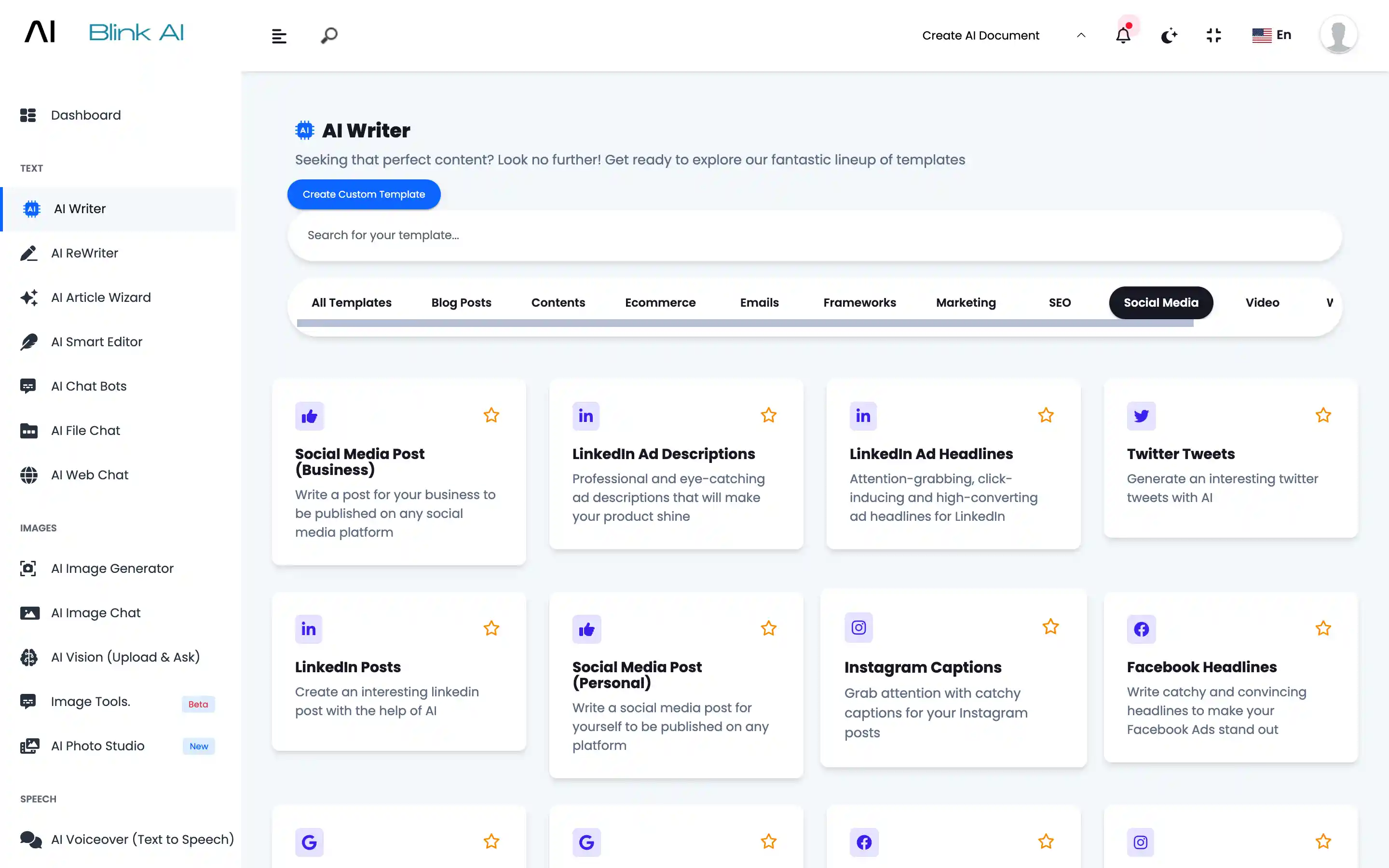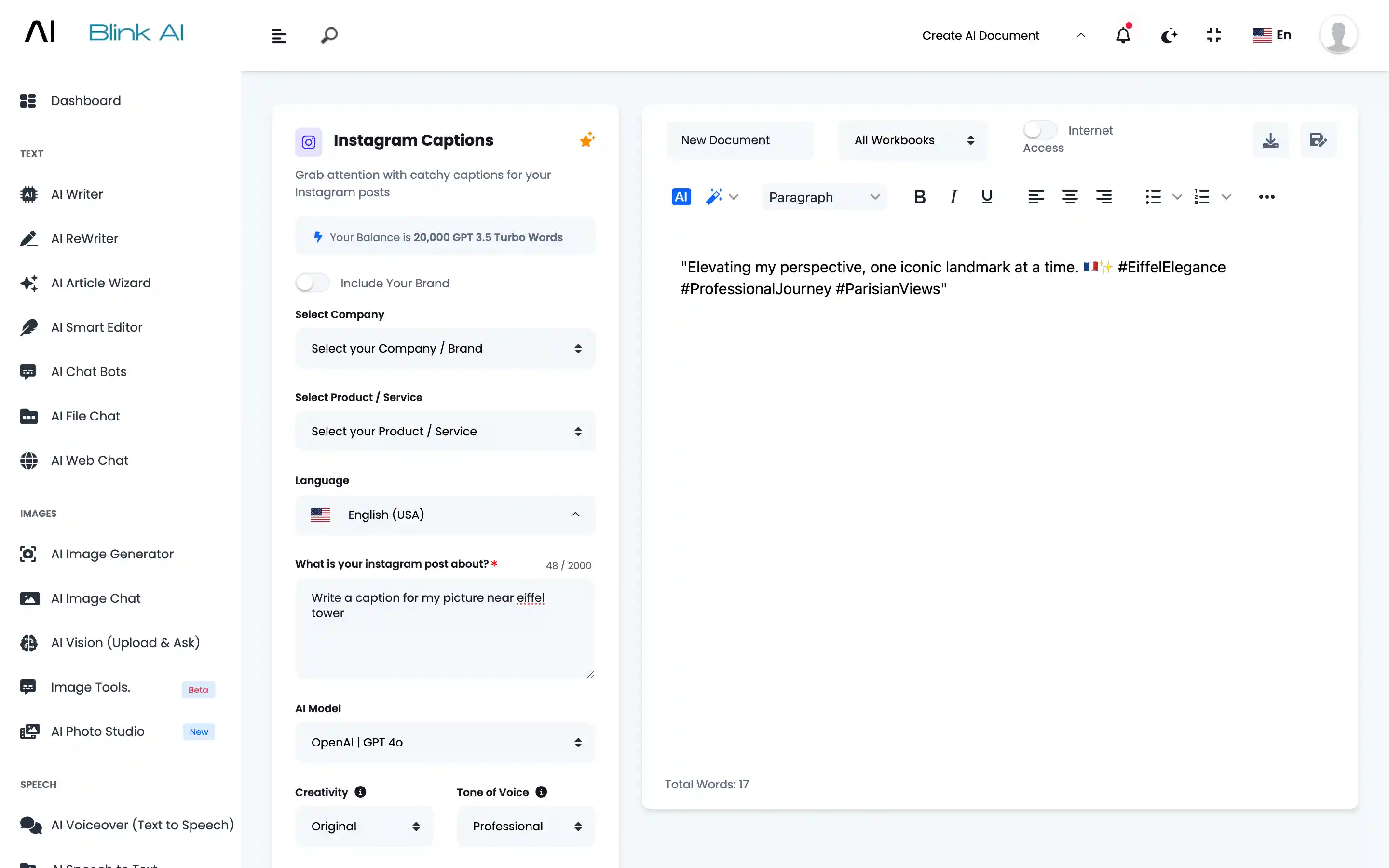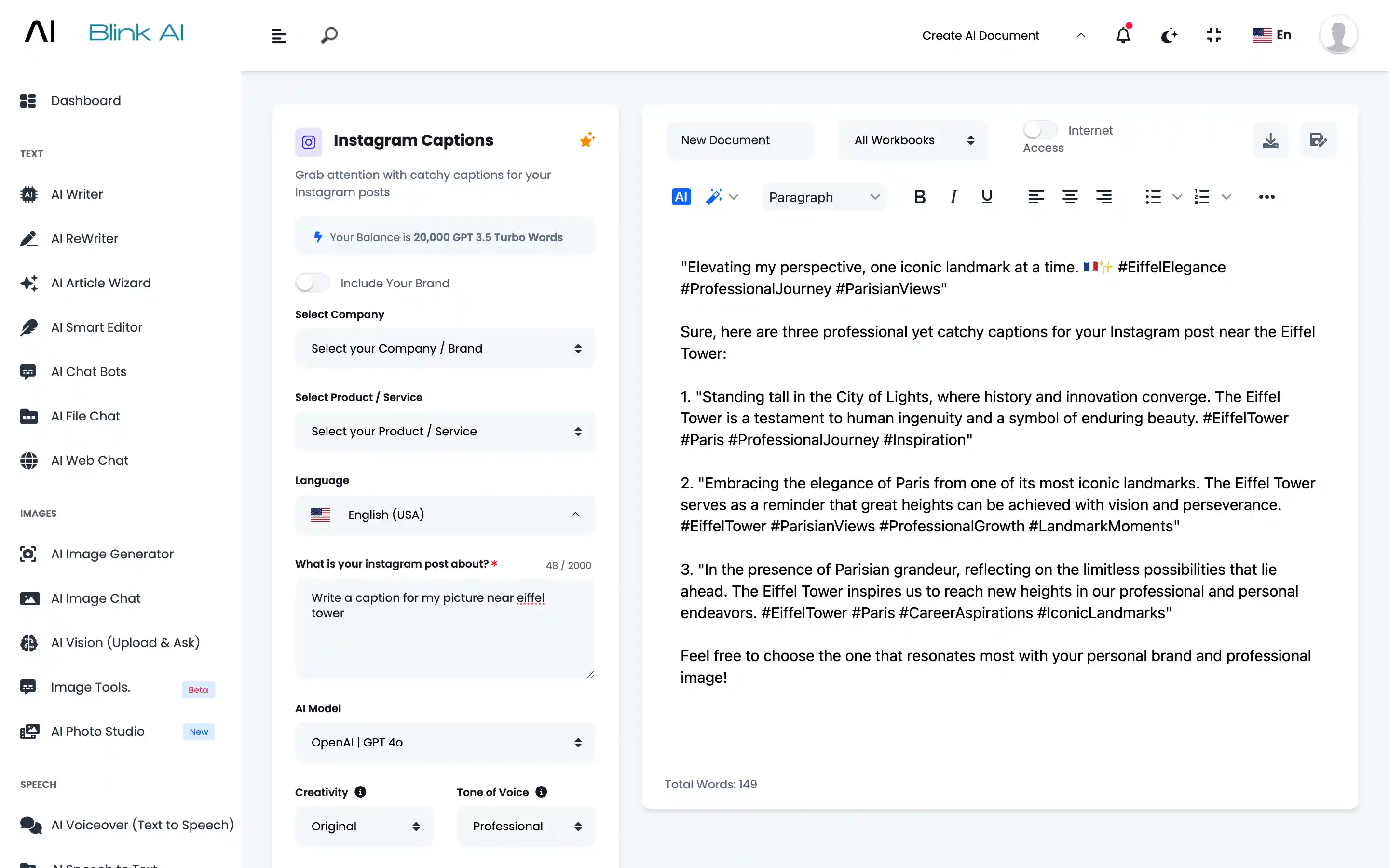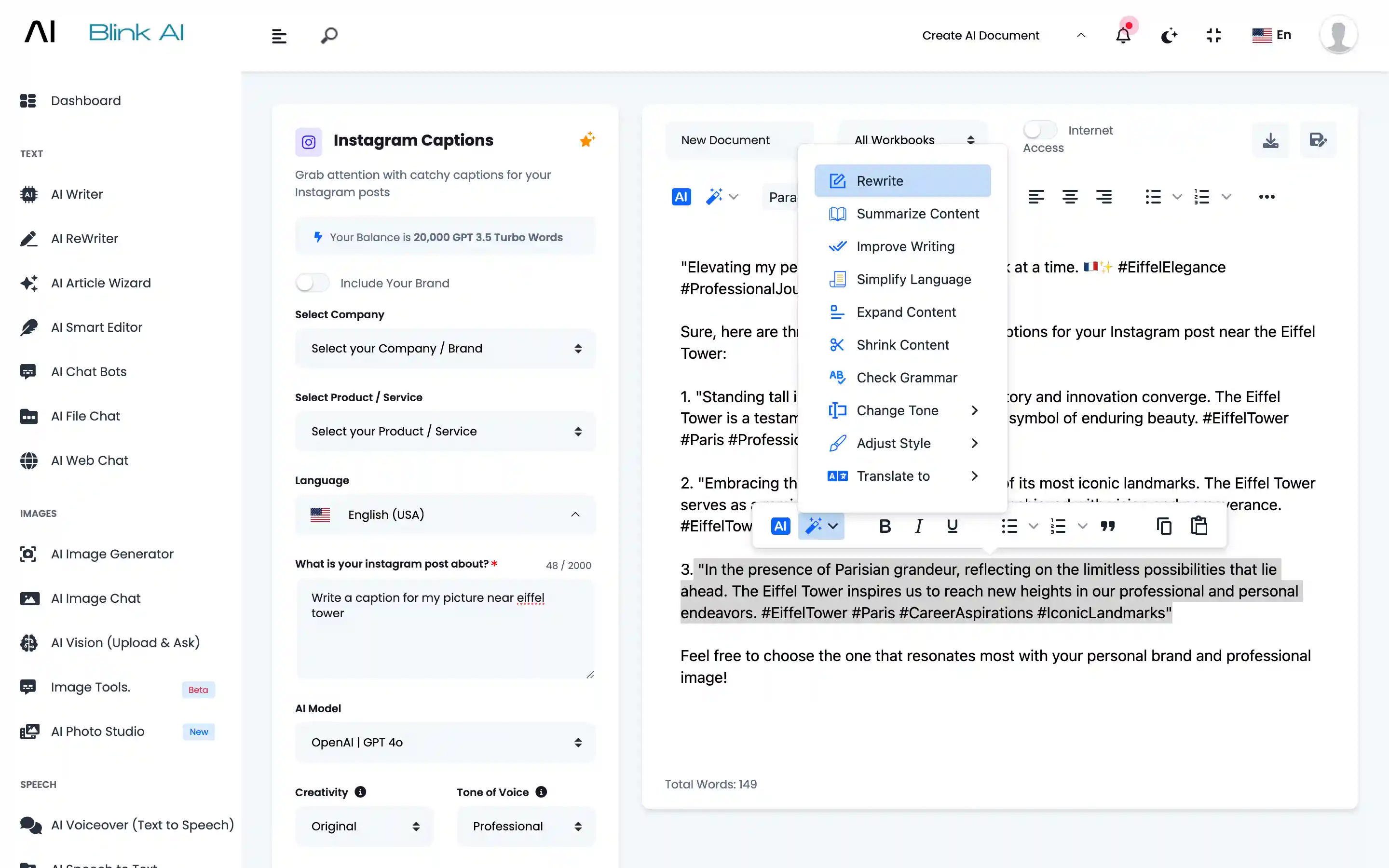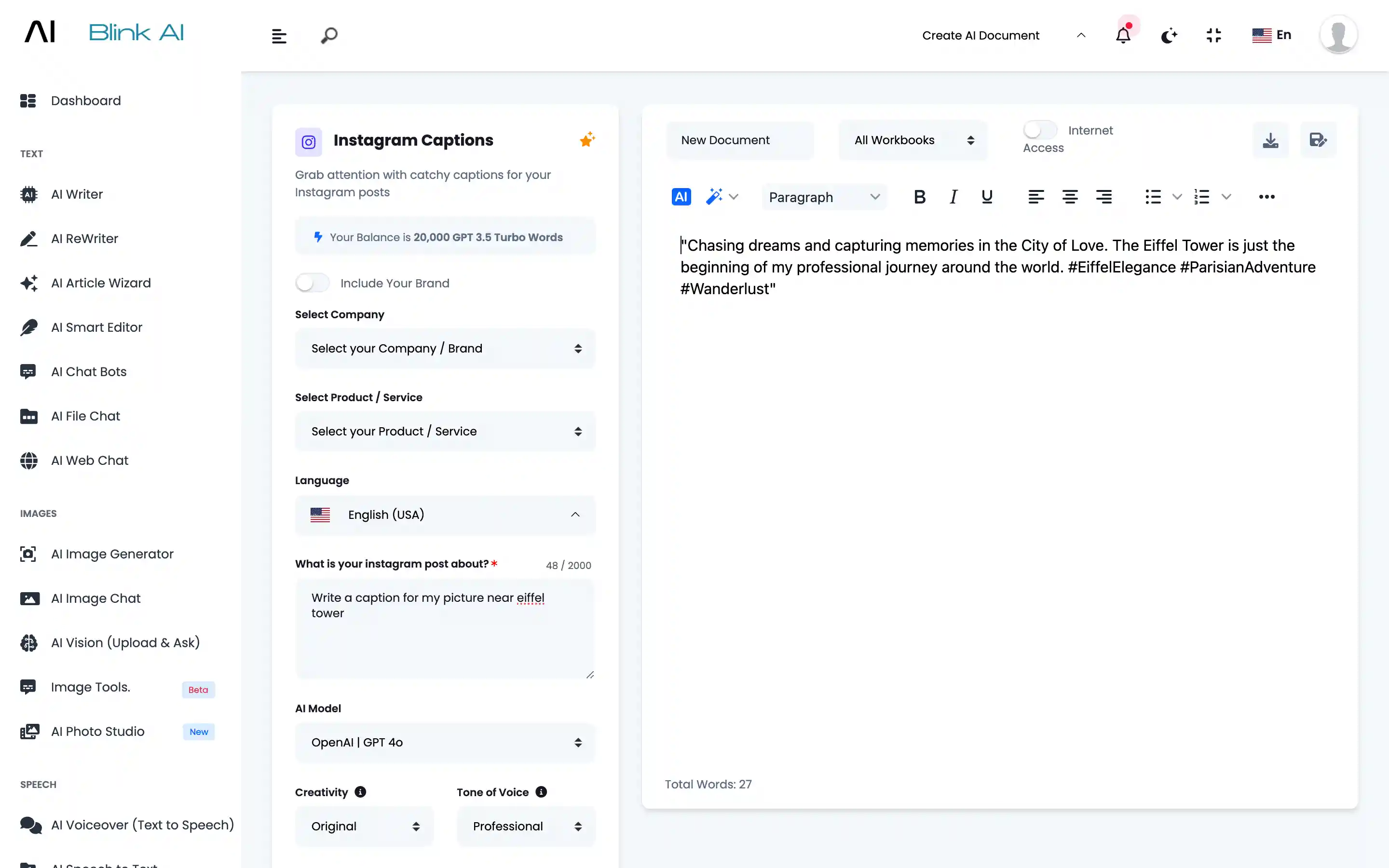Meet, BlinkAI – AI Content Generator: Text, Image, Video, Voice & Code
Dictionary
One platform to generate all AI contents





AI Dictionary
Use a dictionary to find all details of your word
About Dictionary
A dictionary is a comprehensive tool that provides detailed information about words, including their meanings, pronunciations, usage, and more. Here's a guide on how to effectively use a dictionary to uncover all the details of a word. 1. Selecting the Right Dictionary 2. Look Up the Word 3. Understanding the Entry Components 4. Utilizing Additional Features 5. Cross-Referencing Using a dictionary effectively involves more than just finding the definition of a word. By exploring all the details provided—such as pronunciation, parts of speech, multiple definitions, examples, synonyms, antonyms, etymology, and usage notes—you can gain a comprehensive understanding of any word. This thorough approach can significantly enhance your vocabulary and language skills.
Example: Exploring the Word "Innovative"
Conclusion
Steps for AI Writing
Start Writing Content in 3 Easy Steps
1
Step 1
AI Writer Section
Go to AI Writer section and select a template
2
Step 2
Details
Provide brief details about your requirement
3
Step 3
Generate
Generate, amend and save content
Discover AI Writer
How To Use Blink AI's AI Writer for Content Creation
Go to AI Writer Section
Choose from 70+ AI Writing Templates or Create your Own Template
Describe
You can provide details like what is the exact requirement. How many outputs you want. Which AI model you want to use.
Generate
Content will be generated based on your input.
Amend
Select the content you want to amend. Click on the Magic Wand to amend Generated Content.
Fresh Output
Fresh output will be generated. You can save it in Workbooks.
